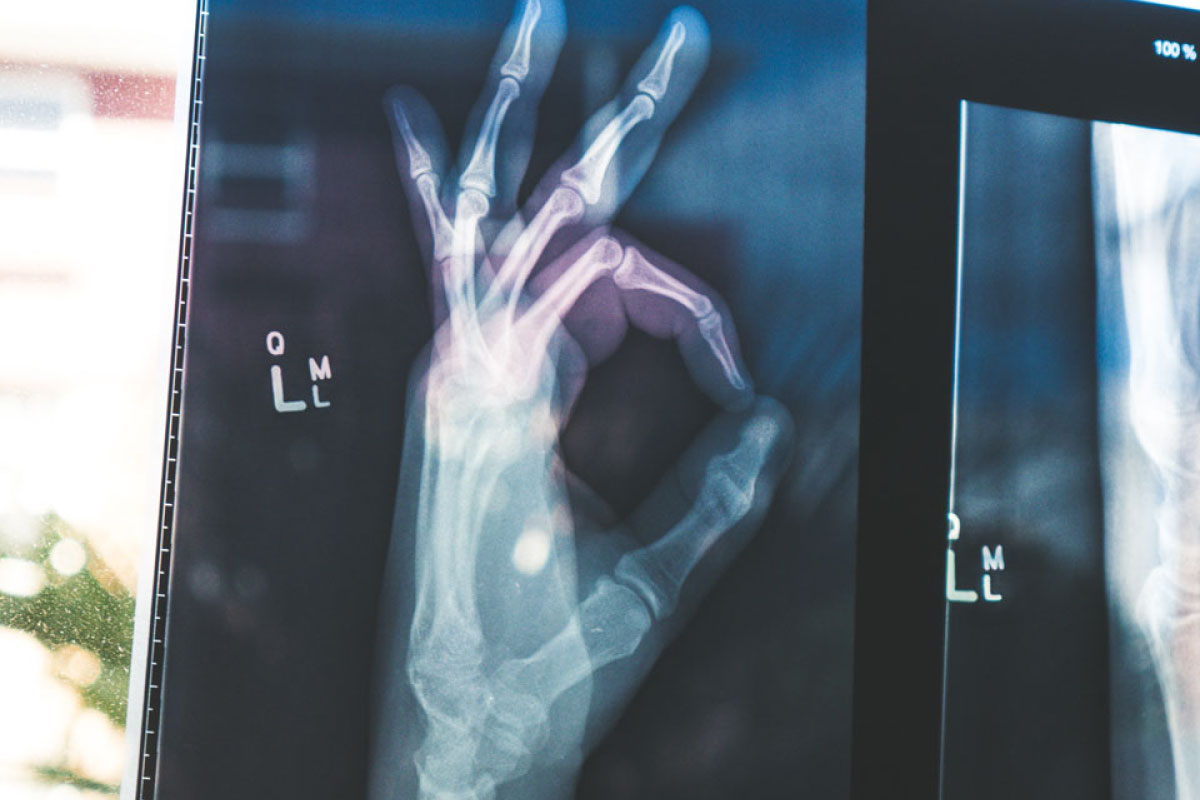What is Medical Interpreting?
Medical interpreting is a specialized area within the fields that comprise interpreting, focused on facilitating communication between healthcare providers and patients who speak different languages. This service is responsible for ensuring that language barriers do not interfere with diagnosis, delivering accurate and effective medical care. Medical interpreters are skilled professionals equipped with linguistic skills, cultural competence, and a strong understanding of medical terminology to bridge the gap in healthcare settings.
The role of a medical interpreter goes beyond simple translation; it requires a deep understanding of medical procedures, patient confidentiality clauses, and the nuances of cross-cultural communication. Effective medical interpreting ensures that patients can fully understand their diagnosis, treatment options, and medical instructions while helping healthcare providers to gather accurate information about a patient’s symptoms and its medical history. This field is key to ensure health equity and reduce disparities in healthcare access and outcomes.
How to become a medical interpreter: skills and qualifications
To succeed as a medical interpreter, professionals must possess a combination of linguistic, interpersonal, and technical skills. It requires fluency and proficiency in medical terminology, at least in two languages, as well as strong active listening skills to convey the intent of conversations.
Cultural competence is essential in medical interpreting. Interpreters must understand the cultural backgrounds of both the patient and the healthcare provider to avoid misunderstandings. They often act as cultural mediators, explaining cultural norms or behaviors that could influence medical decisions or interactions.
Legal and ethical implications
Medical interpreters must also adhere to professional ethics and standards. Confidentiality, impartiality, and accuracy are non-negotiable principles in this field. As interpreters often handle sensitive patient information, they must ensure that no details of the conversation are disclosed without authorization. They also need to remain neutral and avoid influencing medical decisions or outcomes. In these terms, interpreters must faithfully convey messages without omitting, altering, or adding information. Just the fact that they feel understood is key to maintain accuracy, as it is proven that patients are more likely to disclose detailed information about their symptoms and concerns in situations when they feel comfortable, allowing healthcare providers to make more accurate diagnoses.
Advanced competencies for medical interpreters
Beyond foundational skills, medical interpreters need advanced competencies to handle the complexities of modern healthcare environments. To provide precise assistance, interpreters must have a thorough knowledge of specialized fields, such us oncology, cardiology or mental health. Continuous professional development through workshops, seminars, and courses ensures that interpreters remain up to date with medical advancements and terminology. This is crucial to maintain the accuracy principle, as misinterpretation of medical terms can convey serious consequences, such as incorrect diagnoses and treatments.
Interpreters must also develop strong note-taking skills when it comes to consecutive interpreting, where they must remember and relay large amounts of information. They often use standardized symbols and abbreviations to capture details accurately and save time to avoid losing the flow of communication.
Another key feature is emotional intelligence. Interpreters frequently work in emotionally charged environments and must remain composed while facilitating discussions on sensitive topics. The ability to manage personal reactions and maintain a neutral demeanor is crucial for preserving professionalism and trust. In relation to this, they must know how to deal with their own emotional stress while being professional. Medical interpreters often face delicate situations, such as explaining life-saving procedures or confront bad news, including end-of-life discussions.

Certifications and accreditations in medical interpreting
Certification plays a significant role in establishing credibility and competence in medical interpreting. Organizations like the Certification Commission for Healthcare Interpreters (CCHI) and the National Board of Certification for Medical Interpreters (NBCMI) offer rigorous certification programs that assess language proficiency, interpreting skills, and knowledge of medical terminology and ethics. Accredited interpreters are more likely to receive higher compensation and professional recognition.
The certification process typically includes written exams and oral proficiency assessments combined with practical evaluations. These certifications are often required by healthcare institutions to ensure interpreters meet industry standards.
Maintaining certification requires ongoing education and periodic renewal. This ensures that interpreters stay informed about changes in medical practices, legal requirements, and technological advancements. Many professional associations offer resources, including webinars and publications, to support lifelong learning in the field. You can learn more about these institutions and the process for obtaining their license in the publication ‘Path to National Medical Interpreter Certification’.
The role of medical interpreters in multidisciplinary teams
Medical interpreters often collaborate with multidisciplinary teams to provide comprehensive care. Their role involves facilitating communication not only between patients and physicians but also among other healthcare professionals, including nurses, social workers, and therapists. This ensures that all members of the care team have a shared understanding of the patient’s needs and preferences.
Interpreters often assist with administrative tasks, such as explaining consent forms or discharge instructions. Their presence enhances the overall patient experience by reducing confusion and ensuring that all parties are aligned in their communication. However, interpreters must refrain from giving personal opinions or advices.
Interpreters working in multidisciplinary teams must balance their responsibilities while adhering to ethical guidelines. They must avoid overstepping their role as mediators by offering personal opinions or advice, focusing only on enabling clear and accurate communication.
The future of medical interpreting
As the healthcare industry continues to evolve, so does the field of medical interpreting. Some systems already incorporate tools like glossaries or real-time transcriptions to support interpreters in complex interactions. Advances in artificial intelligence and machine translation tools, such as AI-driven medical interpreting platforms, are beginning to supplement human interpreters. Even though these technologies can enhance efficiency, they cannot replace professional interpreters because of their lack of cultural sensitivity and nuanced understanding.
Another area influencing the future of medical interpreting has to do with remote interpreting solutions, including video remote interpreting (VRI) and over-the‑phone interpreting (OPI). With the rise of virtual healthcare, interpreters must adapt to remote settings and familiarize themselves with teleconferencing platforms. These advances also present new challenges, such as ensuring patient confidentiality and managing technical difficulties, and it might not be as effective in situations that require non-verbal communication, but also offers opportunities to reach more patients in need (they can assist patients and healthcare providers regardless of their location).
Growing awareness of health disparities has increased the demand for language access services. Medical interpreters will play a crucial role in addressing these disparities, advocating for equitable care, and fostering inclusivity in healthcare systems worldwide.
How Global arena can help you with healthcare interpreting?
Global Arena can help you with some programs, such as Global Arena’s Bridging the Gap, go further by addressing cultural and legal issues that may arise and offering units for specialized areas of medicine. This knowledge is what makes qualified interpreters a smarter choice than family or community members who accompany visits.
Medical interpreting is an indispensable component of modern healthcare, ensuring that language barriers do not hinder the delivery of high-quality medical services. Qualified medical interpreters have shown significant improvements in healthcare outcomes for patients with limited English proficiency.
Their presence significantly reduces the chances of medical errors and contributes to stablish better patient-provider relationships. By combining linguistic expertise, cultural competence, and ethical integrity, medical interpreters help bridge communication gaps and promote health equity.
As the demand for language access services continues to grow, the field of medical interpreting will remain essential in creating inclusive and effective healthcare systems. In response to this growth, technological advances will continue to be key to optimize and accelerate processes without compromising the quality of services.








4 Responses
Medical Interpretation can be very helpful at times. It helps in connecting doctors and patients in a very easy way. Thanks for sharing such nice information.
Thank you Alex for your thoughtful comment! Indeed, Medical Interpreters are instrumental in situations when Doctors and Patients require that each party fully understands what is communicated.
I am a retired Social Worker, looking for a meaningful
Occupation.
The Medical Interpreting Course would be ideal for me. I do have a Caribbean/ American background which would enhance my ability to do well in this school of learning.
Hello! We still have a few spots for our November Bridging the Gap Medical interpreting program. It is delivered online and might be a good fit for your needs. If interested, please register in the formulary.